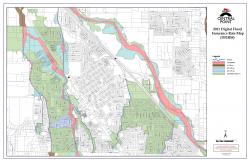-
City Services
-
- Departments Administration Building City Recorder Community Development Community Emergency Response Team Finance Floodplain Management Human Resources Parks & Recreation Public Works Police Urban Renewal Utility Billing
- Commissions and Committees Arts Commission Budget Committee Citizen Advisory Committee Parks Foundation Parks and Recreation Commission Planning Commission
-
Agendas and Minutes
City Council
-
-
Community
-
- Schools Crater High Scenic Middle Central Point Elementary Mae Richardson Elementary Jewett Elementary School District 6 Map Rogue Community College Southern Oregon University
- Special Events Calendar of Events Park Special Events Recreation City Activity Guide City Parks British Soccer Camp Jackson County Expo Bear Creek Greenway Bike Path Rogue River Greenway Bike Path Hiking Paths Made in Southern Oregon
- New to Central Point Chamber of Commerce Central Point Library Justice Court Utility Services Senior Center Post Office Airport Get Involved Commissions & Committees Volunteer Parks Foundation Elections
-
-
Resources
-
- Online Resources Pay Your Water Bill Pay a Ticket Online Job Opportunities Municipal Code Documents and Reports Forms and Applications City Documents Library Portal Water Usage Portal COVID-19 Updates Alerts and Notifications Email Subscriptions Maps
- Events and Meetings Agendas and Minutes Ordinances Resolutions Calendar Local Services Jackson County City of Medford Justice Court Recycling
- Connect Submit a Request or Concern Staff Directory Facebook Twitter In the News City News City Newsletters
-
-
Business
-
- Start a Business Business Licenses Chamber of Commerce Building/Construction Building Permits Inspection Requests Design Criteria Building Forms Bids and RFPs Forms and Permits
- Community Development City Projects Zoning & Land Development Code Long Range Planning Maps
- Urban Renewal Urban Renewal Home
-
-
Public Safety
-
- Communications Mission & Core Values Organizational Chart What We Do Patrol School Resource Officers (SRO) Community Service Officers Police Support Specialists Police Volunteers
- Get Involved Join the Team Becoming a Volunteer Neighborhood Watch Community Emergency Response Team Requests Police Reports and Records Check
- Resources Municipal Code Traffic Safety Police Events/Calendar Court Information Vehicle Impound Release Frequently Asked Questions
-
Disaster Registry
The Disaster Registry provides the names and locations of people who need special assistance to fire, police, health, and rescue workers when a disaster, such as wildfire, flood or earthquakes occur. You may want to consider the Disaster Registry if you or someone you care for would:
- Need assistance safely evacuating your home during a disaster;
- Would be in jeopardy if you stayed in your home without assistance for at least three days;
- Need special notification of the need to evacuate your home due to impairment.
To sign up for the Disaster Registry, complete the Disaster Registry form and click submit when complete or print the completed form and mail to:
SDS RVCOG Disaster Registry
P.O. Box 3275
Central Point, OR 97502.
Agency Links
Federal Emergency Management Agency (FEMA)
Department of Land Conservation & Development (DLCD)
Department of State Lands (DSL)
National Marine Fisheries Service
Jackson County Emergency Management
Flood Forecast Information
Advanced Hydrologic Prediction Service, Bear Creek
Flood Season Updates
Central Point's flood season begins around the end of October and ends around the middle of April. This season be sure to keep the following safety tips in mind. More updates will be posted in the event of a flood.
Flood Safety Tips
|
Prepare an evacuation plan. Develop a plan that includes a meeting place outside of the house, as well as an escape route to an area that is safe from floodwaters. Back-up plans are always a good idea, just in case. |
Shut off gas and electricity. Be prepared with a detailed checklist to shut off utilities. You can help prevent gas leaks and shock related deaths or injuries. |
|
Avoid walking through flowing water. Drowning is the number one cause of flood-related deaths. Currents can be deceptive. Six inches of moving water can knock an adult off their feet. |
Look out for animals, especially snakes. Small animals that have been flooded out of their homes may seek shelter in yours. Use a pole or stick to poke and turn thinks over and scare away small animals. |
| Turn around, don't drown. More people drown in their cars than anywhere else. Don't Drive around road barriers because the road or bridge may be washed out. | Look before you step. After a flood, the ground and floor are covered with debris including broken bottles, nails, and mud. Be cautious because these surfaces can be very slippery. |
| Stay away from power lines and electrical wires. Electrocution is the second greatest cause of flood-related deaths. Remember that electrical current can travel through water. Report downed power lines by calling 911. | Be alert for gas leaks. Use a flashlight to inspect for damage. Don't smoke or use candles, lanterns or open flames unless you know that the gas has been turned off and the area has been ventilated. |

